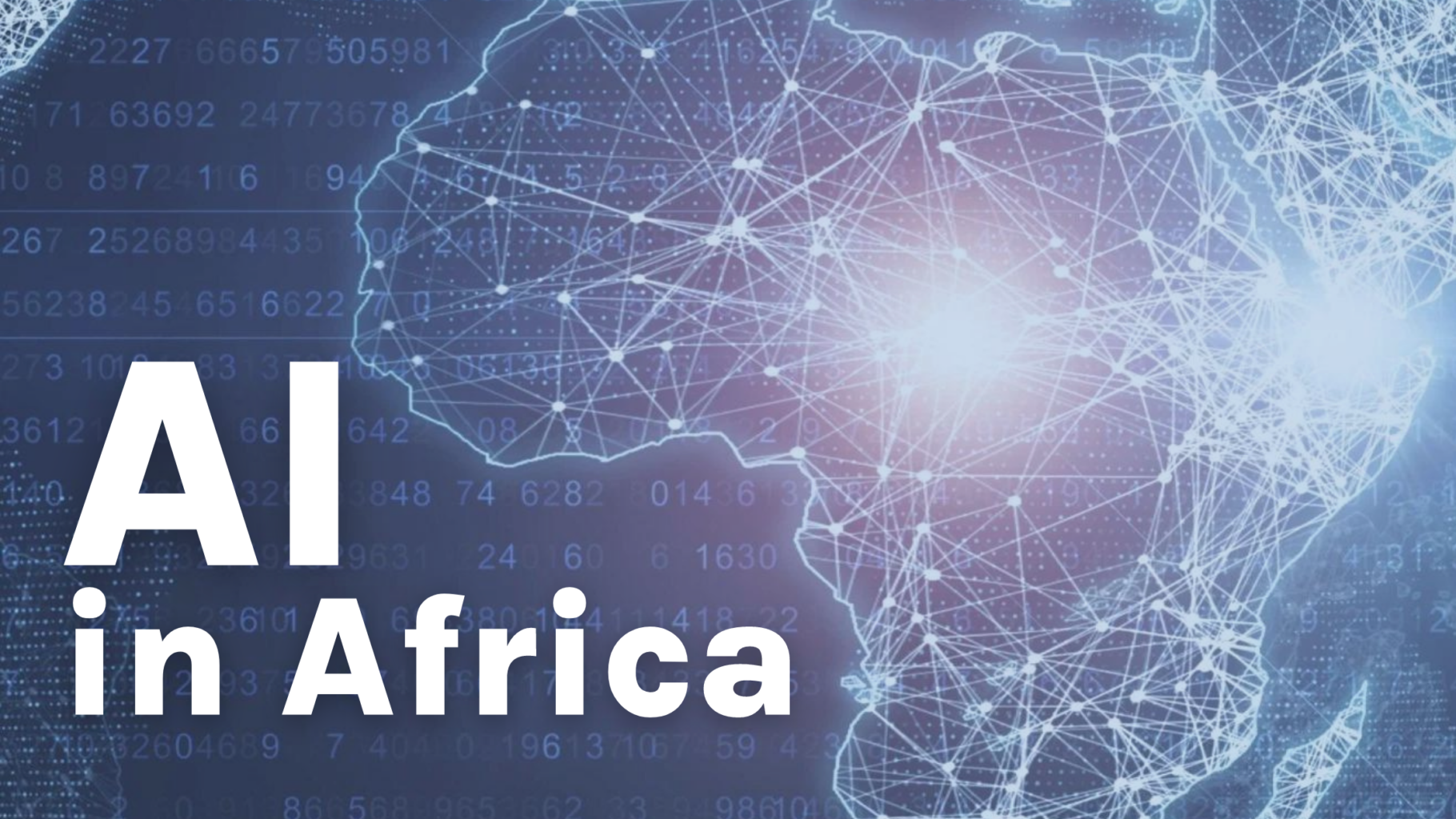Can AI help transform Africa?
by Sherif Kamel, Dean of the School of Business at the American University in Cairo

originally shared via Linkedin here
During this summer, I published in July the first in a series of articles that addressed the topic of our time and the focus of many conversations––Artificial Intelligence (AI). The article covered AI from a general perspective, so I chose the title: “Whether it is artificial or augmented intelligence, the future will look so much different.” In August, I thought of zooming in on my field of interest––education and lifelong learning, primarily business schools––and how AI can be a game changer in business education. I named the article “Does generative AI represent an infliction point for business schools?” As we welcome the autumn, here is the third article, which focuses on my continent––Africa––which I am always passionate about and interested in its prospects despite being constantly marred with different challenges.
Today, depending on what report you read or who you talk to, there are around 54 countries in Africa. Although there are few similarities across the board, there are many differences. From an economic and inclusive development perspective, massive variations exist between different countries across the continent. However, despite the various socioeconomic challenges and the inter and intra-country divides––not just digital––one essential and promising common ground is the young, passionate, and ambitious growing population of more than 1.2 billion people, with more than 60 percent under the age of 25. This vast human capital asset represents a powerhouse of digital natives. It could be instrumental in making a positive impact on their respective societies––provided that there is universal access to affordable quality education, lifelong learning, and adequate healthcare services supported by legal, regulatory, and enabling environments that promote innovation, encourage investments, and facilitate doing business in an evolving digital economy.
For Africa, adopting AI and other advanced innovative technologies represents a mixed blend of opportunities and challenges, with much to gain and lose. Therefore, it will be up to African countries to decide how to use such an opportunity for the betterment of their societies. The need to catalyze sustainable and scalable long-term economic growth has become imperative for Africa, and despite all the unknowns related to AI, the future looks promising.
In a constantly accelerated age of digital transformation, such a move can create a demographic dividend, boost inclusive and economic development, and transform societies. However, in the absence of such an environment, if the dividend is not realized, and with the prospects envisioned through AI, Africa could face a growing demographic burden and more socioeconomic challenges––to say the least––which can lead to a variety of societal risks including but not limited to higher unemployment rates, lower productivity, and further poverty.
AI is neither a new product nor an industry that is unfolding. It is an entirely new phase in accelerating digital transformation that, together with the adoption of other advanced innovative technologies such as robotics, machine learning, and the Internet of Things, could push the evolution of a new chapter in human development in the next decade or so. It is only a matter of time before AI becomes one of the driving platforms for the global economy. The pace of the acceleration will depend on societal readiness in terms of talent development, skillset acquisition, investment in infrastructure, a conducive legal and regulatory environment, and, most importantly, the availability of adequate, timely, and quality data. Where is Africa from all this? There are bits and pieces here and there, and AI is gradually penetrating a few industries and professions, but is it enough?
The current efforts by some African countries can help navigate and mitigate some but not all of the disruptions AI will cause. However, the integrated multi-stakeholder ecosystem that can help organizations, markets, and economies remain adaptive and agile is far from being discussed thoroughly across the continent. Such conversation must take place soon, or African economies and businesses will find it challenging to be competitive.
One of the most significant ways AI will impact different types of organizations is by offering trends analysis, informing strategic planning, and digitizing routine tasks that once were performed by human capital with limited skillsets and capacities. It is perceived that AI will affect more than 300 million full-time jobs globally in the next decade and create new jobs that could increase productivity. Therefore, it is essential to constantly upskill and reskill the workforce to help them transition into more advanced responsibilities that would require creative thinking and complex problem-solving––to mention a few––to enhance the efficiency and effectiveness of the organizational decision-making process at all levels, which will become a critical success factor in the age of artificial intelligence.

Cultivating human talent with the knowledge and skills to meet the future needs of the market will remain an integral element in accelerating and deploying today’s and NextGen AI innovations. The question is: are there enough educational and lifelong learning institutions in Africa currently strategizing to reconfigure their offerings to adapt to the capacity-building needs for the future of work, including the fourth industrial revolution technologies such as AI?
In Africa, it is still early days, and AI has been gradually spreading and modestly used in different shapes and forms in some countries in selected industries, especially financial services, agriculture, and healthcare. However, because AI is here to stay––provided the availability of the various enabling requirements––I expect faster and further adoption of AI in the future across other economic sectors throughout Africa. Multiple studies have projected that AI adoption is expected to generate north of $15.7 trillion for the global economy by 2030, including around 40 percent from increased productivity and efficiency and 60 percent from market dynamics and consumption effects. If correct, that would be massive, but how about the projections for Africa’s share? It is expected to be around $1.2 trillion, about 7.6 percent of the total generated globally, although Africa today is home to 15 percent of the global population. Is that enough? Would that lead to widening the gap between Africa and the rest of the world?
Adopting AI could be more significant if the focus becomes Africa-centered, nurturing local solutions to local challenges. Besides, it is essential that AI is adapted to the continent’s interests, values, and cultures. However, it is worth noting that with these possible projected economic implications, there are also a variety of risks and challenges associated with the misuse, bias, and privacy of data, as well as ethics, intellectual property rights, and security.
Africa can jump on the bandwagon of AI if they further unleash the potential of its young population in terms of innovation, creativity, and discovery. It is now crystal clear–in many ways–that the future belongs to the effective disruption enabled by the intersection of human talent, innovation, unlimited access to technology platforms and applications, and advanced data analysis in its different forms, whether structured, unstructured, or more. AI and other cutting-edge innovations could transform manufacturing, agriculture, healthcare, retailing, transportation, energy, education, logistics, entertainment, and government services.
Although the adoption of AI would vary from one country to another and from one sector to another, arguably, the sector with the most potential in Africa is the financial sector due to the availability of talent and the size of the investments. One of the enabling factors would be how governments respond and support the private sector to take the lead in transforming these sectors to improve productivity and enhance efficiency.
It is promising to see several African countries busy formulating their AI strategies, projects, and initiatives, clearly indicating their interest in the potential of such innovation in realizing a positive economic transformation. These national AI strategies––although in various stages of execution––most demonstrate commitment to investments in digital infrastructure, lifelong learning, and a conducive business environment.
A few questions come to mind as we entertain AI’s prospects in Africa and its positive implications for its economies and societies. Is Africa ready to be digitally transformed? Will the cultures, habits, and values play a part? How will AI drive innovation and consequently affect businesses in Africa? Can local enterprises and tech-enabled startups align AI with their strategic objectives? How can businesses mitigate the risks associated with AI? Can businesses help entrepreneurs and employees harness AI to augment productivity and efficiency? Is the AI talent available in Africa enough? Are they ready to work for the private sector, or do they prefer working for the government? Could AI be the turning point to accept, from a cultural perspective, the role of vocational training and technical education? How will recruitment change in an AI-enabled environment? How can businesses streamline operations to improve efficiencies, rationalize expenses, rightsize their workforce, and augment productivity? How many tasks, functions, and operations will be digitized, merged, or canceled? Will AI help enterprises of all forms across different industries become more inclusive?
Many believe that with a further acceleration of digital transformation and the growing role of AI in various walks of life, it is inevitable that machines will eventually replace people. This is early to tell because of the constant emergence of different versions of various AI-powered applications. Unless we are better prepared and trained to use these innovative technologies in more complex and advanced tasks, we will be replaced not by machines but by more skilled and knowledgeable people capable of taking their game to the next level. Human capital is the most critical asset in society, and their skills will continue to represent the differentiating factor. They will always have the advantage of creativity, intuition, and passion—machines cannot have that. For centuries, human ingenuity––through the quest for knowledge––has surprised us with innovations that transformed lives and livelihoods. I firmly believe it will continue to do so for the foreseeable future.
Despite the diverse challenges faced by Africa, whether social, economic, or political, the continent could be on the cusp of a transformational change that will hopefully lead to inclusive and sustainable growth in the age of digital transformation led by artificial intelligence.
About the author: Sherif Kamel, a Professor of Management and Dean of the School of Business at The American University in Cairo. A seasoned executive and a passionate scholar who believes in the invaluable power and reach of the intersection of society’s most precious asset––the human capital––and constantly emerging and disruptive innovative technologies, that learning is an exciting lifelong journey and that the world is full of invaluable opportunities to learn from, share experiences, make a difference, and realize an impact.
#TheNileView #AI #ArtificialIntelligence #AugmentedIntelligence#Digitalization #Impact #TheFuture #Learning #Work #Innovation#HumanCapital #IntelligentMachines #HumanIngenuity #Business Schools #GenerativeAI #Universities #HigherEducation #DataAnalytics #TheFutureOfWork #TheFutureOfLearning #Egypt #Africa #EmergingEconomies #Developing Countries #InclusiveDevelopment



